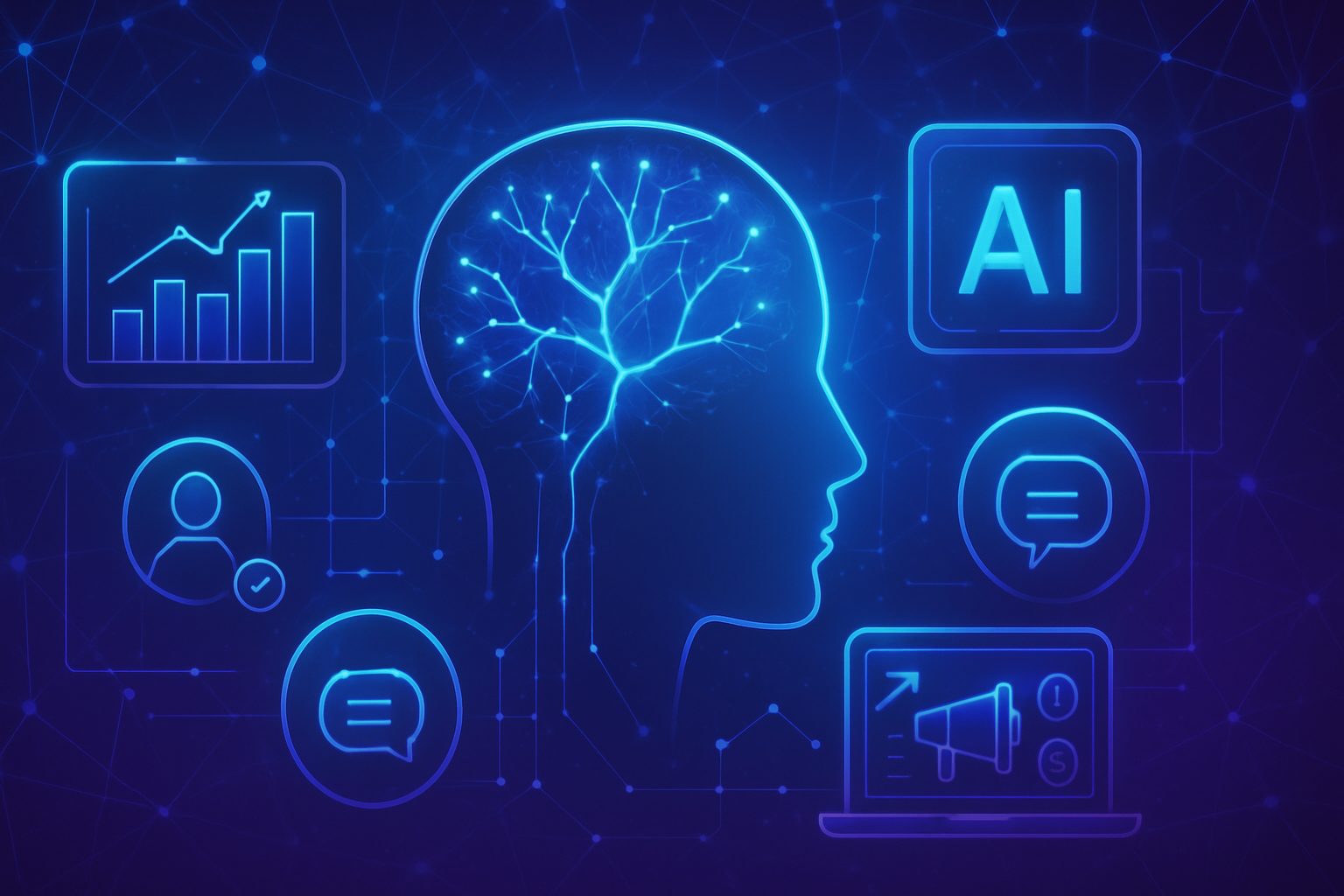Language artificial intelligence is revolutionizing the marketing landscape. Brands are moving towards a _real-time hyper-personalization_ to capture consumer attention. In France, 83% of customers prefer a message tailored to their specific needs. The majority of companies struggle to meet this demand; only 44% are ready to respond. Linguistic AI, by facilitating _multilingual production_, bridges this gap and optimizes your campaigns. The risk of miscommunication internationally becomes a major challenge, especially for sectors where every word counts. The challenge then is to _maximize return on investment_ by delivering precise and engaging messages.
Linguistic artificial intelligence: a strategic lever
Every customer interaction is revealed as a strategic issue in today’s marketing landscape. In an era where hyper-personalization becomes a requirement, linguistic AI stands out as a decisive asset. A recent report highlights that 83% of French consumers show increased interest in brands offering real-time, personalized exchanges. Yet, only 44% of companies claim to be able to meet this demand.
Smoothing marketing processes with AI
Marketing teams benefit significantly from linguistic AI, which reduces the constraints associated with repetitive tasks. This technology optimizes the production of multilingual content, the localization of campaigns, and the adaptation of messages to cultural contexts. By automating these operations while maintaining a high level of writing quality, teams can focus on the strategic and the creative.
By relieving the workload, AI allows specialists to design unique customer journeys and refine their messages. This reorientation of resources fosters greater efficiency in marketing actions and shortens time-to-market cycles. According to a recent study, 7 out of 10 managers note an increase in their teams’ productivity thanks to the integration of linguistic AI.
Reducing risks associated with international communication
Communicating on an international scale poses significant challenges. A mistaken translation or an inappropriate cultural adaptation can compromise brand image. In sectors such as luxury, gastronomy, or cosmetics, the choice of words is critically important and can strongly influence consumer perception.
Linguistic AI acts as a guardian of precision in this area. By integrating cultural and linguistic nuances, this technology ensures communication faithful to the original intention while meeting the expectations of local markets. This becomes all the more crucial when it comes to conquering regions with varied commercial dynamics, such as India or Southeast Asia.
Maximizing marketing investments
The impact of linguistic AI also extends to the efficiency of marketing investments. By reducing costs associated with translation and increasing content relevance, this technology promotes higher engagement rates and improved conversions. An enhanced customer experience thus becomes accessible, strengthening brand loyalty.
By facilitating expansion into new markets, AI enables companies to quickly test localized approaches without incurring excessive budgets. This flexibility is essential in an environment where businesses seek to diversify their sources of growth, lowering linguistic and financial barriers to internationalization.
The ability of linguistic AI to improve marketing return on investment becomes a sought-after asset for organizations. By maximizing every euro invested, they manage to stimulate their growth while aligning with the evolving needs of consumers.
Impact on overall organizational performance
Hyper-personalization and responsiveness to market trends result in increased performance and more iterative marketing. Linguistic AI not only simplifies internal processes but also allows brands to adapt their strategies, thus building coherence in communication.
As a result, brands can establish themselves in the international market without compromising their authenticity and message. The integration of linguistic AI serves as a mark of trust for consumers while reinforcing the impact of each marketing campaign.
Companies utilizing this technology position themselves favorably against their competitors in a world where every interaction counts. Through the strategic exploitation of linguistic AI, marketing becomes more agile, and brands are better prepared to tackle tomorrow’s challenges.
Frequently asked questions
What is linguistic artificial intelligence and how can it help marketing?
Linguistic artificial intelligence uses advanced algorithms to analyze and generate human language. In marketing, it automates the production of multilingual content, adapts messages to cultural specifics, and personalizes communications in real time, thereby enhancing the impact of campaigns.
How does linguistic AI improve the efficiency of marketing campaigns?
It streamlines content production, allowing marketing teams to focus on strategic and creative tasks. This accelerates time-to-market and enhances message relevance, resulting in better engagement and conversion rates.
What are the advantages of linguistic AI for international communication?
Linguistic AI helps avoid translation and cultural adaptation errors, ensuring that the message retains its meaning and intention. This is crucial in sectors like luxury or gastronomy where tone precision is essential to maintain brand image.
Can linguistic AI be integrated into existing marketing campaigns?
Yes, linguistic AI can be easily integrated into existing content management and marketing systems, allowing for a smooth transition to a more agile and personalized approach without disrupting current operations.
What is the importance of hyper-personalization in modern marketing?
Hyper-personalization meets the rising expectations of consumers seeking tailored experiences. By using linguistic AI, brands can interact with customers in real-time and in a personalized manner, leading to increased sales and enhanced loyalty.
How does linguistic AI reduce costs associated with translation?
By automating translation and localization processes, linguistic AI significantly reduces costs and timelines associated with these activities while maintaining content quality and relevance, allowing companies to better optimize their marketing budgets.
Is linguistic AI suitable for all sizes of businesses?
Yes, linguistic AI is scalable and can be adapted to both small businesses and large multinationals, offering personalized marketing solutions tailored to the specific needs and resources of each organization.
What are the future trends of linguistic AI in marketing?
Future trends include even deeper integration with data analysis systems, more granular personalization, and continuous improvement of algorithms to understand and anticipate consumer behaviors, making marketing even more responsive.






